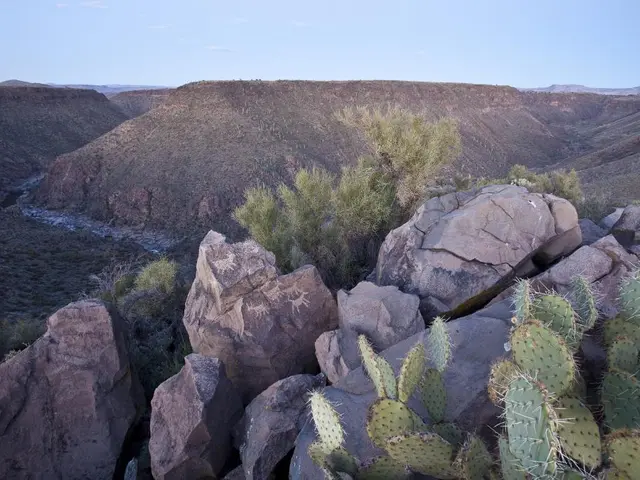Kazakhstan Boosts Water Management with $470M in Projects, UNDP & Germany's Support
Kazakhstan, facing significant water challenges, has been working closely with the United Nations Development Programme (UNDP) to improve its water management systems. The country, which relies heavily on water for agriculture, has also been exploring global partnerships to facilitate innovative water technologies. Recently, it allocated a substantial budget for water supply projects, aiming to enhance its water infrastructure and sustainability.
Kazakhstan's water consumption per unit of production is notably higher than in countries like Russia and the United States, standing at 109 cubic meters. To tackle this, the government has planned to invest 218 billion Tenge in 324 water supply projects by 2024. This includes 106 billion Tenge for 122 urban projects and 112 billion Tenge for 202 rural projects.
Germany, Kazakhstan's key agricultural partner, has agreed to draft a global water partnership to support the implementation of innovative water technologies. This comes as 60% of Kazakhstan's water resources are used for agriculture, making it one of the most water-intensive countries in Central Asia.
However, Kazakhstan's infrastructure presents challenges. Many regions struggle with outdated water and power lines, which could hinder the swift adoption of modern technologies. The country is also grappling with environmental issues like melting glaciers, increasing droughts, and the drying up of the Aral Sea, making water a pressing political concern.
Downstream countries like Uzbekistan depend heavily on water for agriculture, while upstream countries like Tajikistan have the upper hand in regional water supply through dam projects. This has led to hydro-political tensions in the region. To mitigate these issues, Kazakhstan has ratified the Water Code, providing a legal framework for coping with water scarcity and cross-border challenges.
Kazakhstan's commitment to improving its water management systems is evident in its substantial investments and international partnerships. By implementing the National Information System for Water Resources using AI-supported software, the country aims to monitor water levels and predict floods and drought periods more effectively. Despite infrastructure challenges and regional tensions, Kazakhstan is taking significant steps towards sustainable water management.







